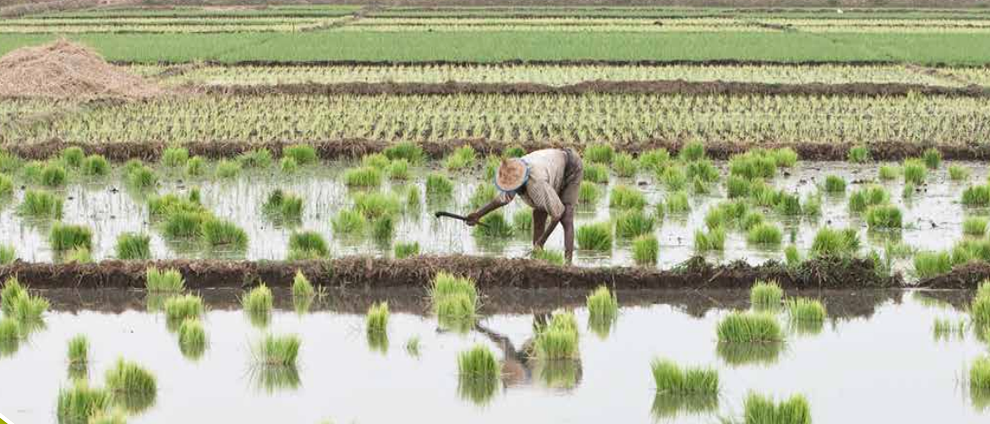Knowledge Products > Details
The Status of Water-use Efficiency and Productivity ( with a Focus on paddy rice in Sri Lanka)

Paddy Rice
©FAO
In Sri Lanka, about 80 percent of the national food requirements are produced locally, with the remaining 20 percent coming from imports. Sri Lanka is self-sufficient in rice production which is the national staple food. However, the cultivation of rice is becoming less profitable for producers, while the vulnerability of the agriculture ecosystems to climate change and natural disasters is increasing the risks of failed harvests and household food insecurity. In order to adapt to climate change and sustainably use natural resources in Sri Lanka, it is crucial to identify best practices and policies in paddy rice cultivation that will enable the country to maintain sustainable production levels.
The "Efficient Agricultural Water Use and Management Enhancement in Paddy Fields" project, funded by the Japanese Ministry of Agriculture, Forestry and Fisheries, aims to improve understanding of the status of water use efficiency and water productivity in Sri Lanka and identify both limitations and potentials at the national level. Under the framework of the project, this report focuses on the technical and policy measures to address existing challenges and outline gaps in the implementation of policies to improve agricultural water use efficiency and enhance management in paddy fields in Sri Lanka. It promotes the formulation and deployment of an effective system for the development of the untapped potential for agricultural water use efficiency and management in paddy fields. The report addresses all stakeholders, including policymakers, researchers, and extension agents, who will, directly and indirectly, benefit from its recommendations.
To read the report, visit the following link:
The status of water use efficiency and productivity with a focus on paddy rice in Sri Lanka
